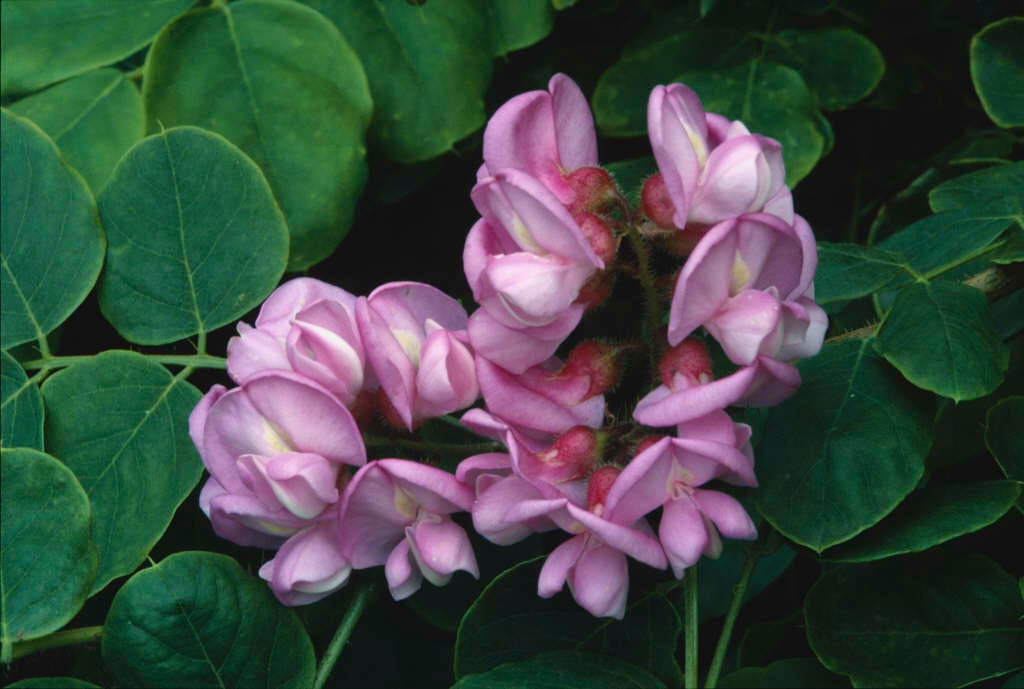Robinia hispida
rose acacia
A suckering deciduous shrub with bristly branches bearing pinnate leaves with oval leaflets, and short racemes of deep rose-pink flowers 3cm long in late spring and early summer

Buy this plant
Size
Ultimate height
1.5–2.5 metresTime to ultimate height
10–20 yearsUltimate spread
1.5–2.5 metresGrowing conditions
Moisture
Moist but well–drained, Well–drainedpH
Alkaline, NeutralColour & scent
| Stem | Flower | Foliage | Fruit | |
| Spring | Pink | Green | ||
|---|---|---|---|---|
| Summer | Pink | Green | ||
| Autumn | ||||
| Winter |
Position
- Full sun
Aspect
West–facing or South–facing
Exposure
Sheltered Hardiness
H6Botanical details
- Family
- Fabaceae
- Native to GB / Ireland
- No
- Foliage
- Deciduous
- Habit
- Suckering
- Potentially harmful
- Harmful if eaten, skin irritant. Wear gloves and other protective equipment when handling Pets: Harmful if eaten, skin irritant - for further information and contact numbers regarding pets, see the HTA guide to potentially harmful plants
- Genus
Robinia are vigorous suckering trees and shrubs, sometimes thorny, with pinnate leaves and racemes of pea-type flowers in early summer, sometimes followed by seed pods
- Name status
Correct
How to grow
Cultivation
Grow in full sun in moderately fertile, moist but well-drained soil in full sun. Can be wall-trained, tying in young growths when they are pliable. Shelter from strong winds, as the branches are brittle
Propagation
Propagate by seed in containers in a cold frame in autumn. Propagate by root cuttings, or propagate by grafting in winter
Suggested planting locations and garden types
- City and courtyard gardens
- Coastal
- Cottage and informal garden
- Flower borders and beds
- Wall side borders
Pruning
Pruning group 1; prune in mid- to late-summer to prevent bleeding. Remove suckers in autumn
Pests
Generally pest-free
Diseases
May be susceptible to honey fungus
Get involved
The Royal Horticultural Society is the UK’s leading gardening charity. We aim to enrich everyone’s life through plants, and make the UK a greener and more beautiful place.